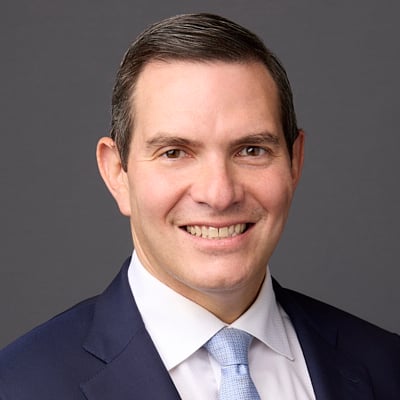Musk Victory Unlikely To Move The Needle On Securities Trials
Partner Martin Roth was quoted in Law360 regarding a recent ruling in the securities class action trial over Elon Musk's tweets about taking Tesla private.
Elon Musk may have been willing to put Tesla's future in the hands of jurors last week, but his rare victory in a securities class action trial is unlikely to leave other corporate defendants clamoring to do the same, legal experts told Law360.
Musk and Tesla escaped a possible $12 billion verdict when jurors in California found that the billionaire CEO had not committed securities fraud when he tweeted in 2018 that he had secured funding to take Tesla private.
U.S. District Judge Edward Chenruled last year that no such funding was in place but left it up to jurors to decide if the statements harmed investors by artificially inflating Tesla's stock price.
The case was a rare example of a securities class action that made it to trial, and legal experts who spoke with Law360 agreed that it's likely to remain that way.
"I think it's an interesting data point," Kirkland & Ellis LLP partner Martin Roth said of the verdict. "But I don't think it's going to change anyone's analysis of a specific case based on their specific factual context."
Between 1997 and 2022, only 19 such cases have made it trial, according to data compiled by Cornerstone Research.
That's less than half of 1% of all similar cases filed in that time frame, according to the data.
That's in part because Congress made it harder for shareholders to successfully allege fraud when it passed the Private Securities Litigation Reform Act in 1995, Block & Leviton LLP partner Joel Fleming said.
The act imposes an automatic discovery stay on newly filed securities suits to determine if investors have pledged enough facts to move forward with their claims, which is a "tough standard to meet," Fleming said.
"A large percentage of cases do get dismissed at the pleading stage," he said. "For cases that survive a motion to dismiss, the overwhelming majority get settled."
Cornerstone Research's 2022 report showed that approximately 46% of securities class actions filed since 1997 have settled while 43% have been dismissed.
The few cases that have made it to trial in that time frame have typically been the "weakest cases" presented by investors, Northern Illinois University College of Law Professor David Rosenfeld said.
Rosenfeld said it was "very telling" that the jury in the Tesla trial deliberated for only a couple of hours before returning a verdict in favor of the defendants.
"That gives you some indication of the strength of the plaintiffs' case," he said. "I mean, this was not something that appears within a close call, at least from the jurors' standpoint."
Still, Musk and Tesla went into the trial already having lost a summary judgment motion that limited the scope of the CEO's possible defenses, Brad Foster of Haynes and Boone LLP said.
"The Tesla case was an impressive victory," Foster said. "But securities class actions are 'bet the company' cases, and very few corporate defendants are willing to gamble to the same extent as Mr. Musk."
In fact, it is Musk's unique relationship with Tesla that may have encouraged him to go to trial, Rosenfeld said.
Musk is Tesla's largest shareholder, and jurors were asked whether he should be forced to pay some or all of the $12 billion in value that shareholders claimed they lost.
Ordinarily, a company that doesn't defeat a securities lawsuit at the dismissal stage is going to be "more risk averse" when looking at its options, Rosenfeld said.
"[Musk] was in a position where he could gamble with his own money, which you don't find very often," the professor said.
Musk and Tesla may have also been encouraged to pursue trial after losing the summary judgment motion — another rarity in securities class actions, Rosenfeld said.
"That gave him at least a possible avenue for appeal, which made it more likely, I think, that he would be willing to roll the dice," he said.
Fleming said it's unlikely that investors like the ones Block & Leviton represent have to worry about more CEOs like Musk pushing for a jury trial. That's mostly because there aren't a lot of CEOs like Musk, he said.
"Most public company executives are pretty cautious, careful people," he said. "They're not just firing off tweets about large, material, market-moving events."
The investors are represented by Adam M. Apton, Adam C. McCall, Nicholas I. Porritt, Elizabeth K. Tripodi, Alexander A. Krot III, Joseph Levi and Eduard Korsinsky of Levi & Korsinsky LLP.
Musk, Tesla and the other defendants are represented by Alex Spiro, Andrew J. Rossman, Ellyde R. Thompson, Jesse Bernstein, Michael T. Lifrak, Anthony P. Alden and Kyle Batter of Quinn Emanuel Urquhart & Sullivan LLP.
The case is In re: Tesla Inc. Securities Litigation, case number 3:18-cv-04865, in the U.S. District Court for the Northern District of California.

